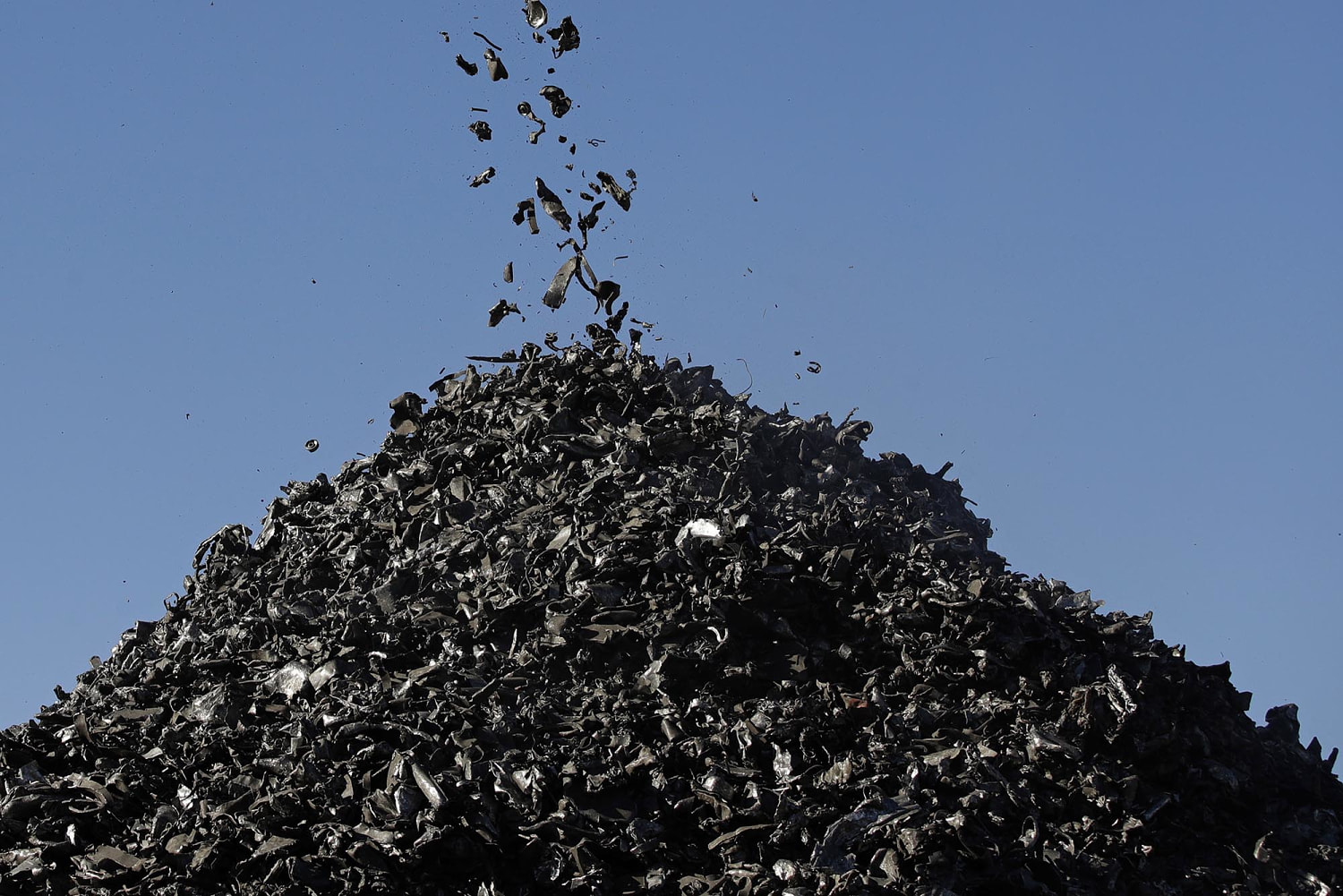Share this @internewscast.com

Other industry stakeholders are sounding similarly circumspect on the eve of what Trump has dubbed “Liberation Day” on Wednesday. The Aluminum Association, for example, supports some but not all of the president’s duties on the key metal.
“Increasing recycling by a few percentage points can drastically reduce our reliance on primary aluminum from foreign sources,” said Charles Johnson, CEO of the trade group, but he noted exports are crucial for the industry, too.
About 20% of recycled steel and 37% of recycled aluminum are sold abroad, according to the Recycled Materials Association, or ReMA. That totaled about $26.7 billion in exports in 2023, the organization estimates, sales that foreign governments’ retaliatory tariffs could choke off.
In 2018, Trump’s steel and aluminum tariffs excluded scrap metal, but ReMA said it hasn’t been able to determine whether that will hold true this time around, including under his blanket duties on Mexico and Canada.
Industry groups have voiced particular dismay that Trump picked a fight with Canada, a major U.S. supplier of both steel and aluminum. The country accounted for over 50% of aluminum imports and over 20% of steel and iron imports as of 2023, according to the U.S. Geological Survey.
Given these interdependencies, ReMA says it’s crucial that the $11 billion worth of recycled materials continues to trade freely within North America.
Our materials move to where there’s the most demand for them.
Adam Shaffer, recycled materials association
“Our materials move to where there’s the most demand for them,” said Adam Shaffer, vice president of international trade and global affairs at ReMA.
While the Aluminum Association has long supported curbing low-cost Chinese imports of “unfairly traded aluminum,” it opposes tariffs on Canadian aluminum. Johnson said he was optimistic that Trump would consider certain exemptions, as he did in 2018. That would help the domestic industry continue to “secure a reliable supply of primary metals for U.S. producers,” Johnson said.
The United Steelworkers has asked the administration to avoid unnecessarily antagonizing one the industry’s biggest trade partners.
“While our union absolutely views tariffs as one of many important tools we need to employ to rebalance our trade relationships, we urge a measured approach that both strengthens our manufacturing sector and accounts for our relationships with our allies, like Canada, who play by the rules,” the labor union said in a Feb. 10 statement.
Michael E. Hoffman, CEO of the National Waste and Recycling Association, which represents mostly consumer goods recyclers, likewise said it’s common for recycled materials to move relatively freely between Mexico, Canada and the U.S.
“It’s a North American model,” he said.
A White House spokesperson didn’t respond to a request for comment.
Even if tariffs succeed in making domestic steel and aluminum — both newly made and recycled supplies — more competitive with foreign counterparts, global retaliation threatens to destabilize commodity markets for these products. Higher prices at home are only good for American businesses if there’s enough demand to support them, Shaffer pointed out.
“It would be harmful for both the recyclers [and] also for the environment if there’s no market for these materials domestically,” he said.
Some Trump administration officials have said their sweeping trade policy changes could cause some short-term pain on the way to reinvigorating American industry. But even within sectors the White House is looking to bolster, there’s skepticism that the gamble will pay off.
“Some things make sense to be made overseas versus here,” said Lincoln, the Pennsylvania recycling plant owner. “I don’t see the infrastructure coming immediately.”

















